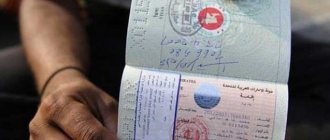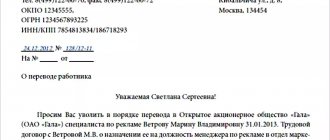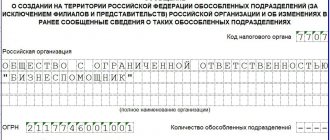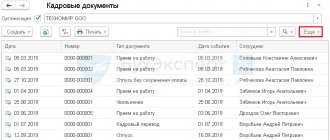Statuses of foreign citizens
The rights and obligations of citizens of other states on the territory of the Russian Federation are regulated by Federal Law No. 115-FZ dated July 25, 2002 “On the legal status of foreign citizens in the Russian Federation.” Paragraph 1 of Article 2 of Law No. 115-FZ establishes three statuses of foreigners and stateless persons.
- Permanent residents. Such persons have a document called “Residence Permit of a Foreign Citizen”.
- Temporary residents. They have a passport from Fr. Another proof of this status can be a document called a “Temporary Residence Permit” (as a rule, stateless persons have it).
- Temporarily staying. The right to stay in the Russian Federation can be confirmed by a passport with an open visa or a migration card. In the latter case, we are talking about a foreigner who arrived from a country that does not have a visa regime with Russia.
Keep personnel records and prepare all personnel reports for free in the “Kontur.Personnel” service
Migration registration and foreigner status
Foreign citizens are subject to migration registration in Russia.
To do this, upon entering the border, a foreigner receives and fills out a migration card. He gives a copy of the migration card to the receiving party in Russia. You notify the Ministry of Internal Affairs about the arrival of a foreigner only if you are the receiving party, for example, if you provide housing to the future employee. This must be done no later than thirty working days from the date of arrival of a foreigner from a member country of the EAEU, fifteen working days if a foreigner arrives from Tajikistan and seven working days from the date of arrival of a foreigner from other countries. The notification is filled out for each foreigner using a special form. Attach a copy of his identity document (passport) and a copy of his migration card to the notification.
The procedure for applying for a job and making payments depends on the status of a foreign citizen. There are three statuses:
- permanent residents - the most “Russified” foreigners with a residence permit;
- temporary residents - have a temporary residence permit;
- temporarily staying - working on a visa, migration card or on the basis of a patent.
Now we’ll tell you about each status in more detail, and you’ll also learn what you need to check and how to register foreign citizens to work for you.
Methods for registering foreign citizens for work
You can enter into an employment contract or a civil law contract with a foreigner. In the first case, the employee is required to perform a labor function and obey labor regulations. In the second case, the employee must complete a specific amount of work within a specified time frame without subordinating to work regulations. For more details, see: “Differences between an employment contract and a GPC agreement: how not to make mistakes when registering a “temporary” employee.”
Draw up and print out an employment contract and order for free in form No. T‑1
Regardless of which agreement is concluded with a foreigner, additional permitting documents may be required.
So, if a candidate comes from a country with which Russia has a visa regime (and his passport contains the corresponding visa), then in order to be employed he must have a work permit. In most cases, the employer himself will need permission to hire such an employee.
If the homeland of a potential employee is a country with which Russia does not have a visa regime, then the employer does not need to have permission to hire an employee. But for employment, a foreigner may need a special patent, which is issued by the Ministry of Internal Affairs. The exception is workers from Belarus, Kazakhstan, Kyrgyzstan and Armenia. Citizens of these states do not need to obtain additional permits (including a patent) to work in Russia.
Submit information about the average number of employees via the Internet Submit for free
Registration of a foreign worker for migration registration
To register a foreign worker for migration purposes, the employer must notify the Ministry of Internal Affairs of his arrival in Russia. The notification is sent to the territorial body of the Ministry of Internal Affairs of Russia in the form approved. by order of the Ministry of Internal Affairs of Russia dated November 23, 2017 No. 881.
In general, the notification is submitted no later than 7 working days from the date of arrival of the foreigner at the place of stay (Part 3 of Article 20 of the Federal Law of July 18, 2006 No. 109-FZ “On Migration Registration of Foreign Citizens and Stateless Persons in the Russian Federation”). The exception is for foreigners arriving from EAEU countries. They can submit a notification of arrival within 30 days from the moment of entry into the territory of the Russian Federation (Article 97 of the Treaty on the Eurasian Economic Union of May 29, 2014). And for citizens of Tajikistan, the registration period is 15 days from the date of arrival.
The notification is submitted directly to the Department of Internal Affairs of the Ministry of Internal Affairs of Russia, by mail, and also through the MFC. The employer has the right to independently choose the method of sending the notification (Part 2 of Article 22 of the Federal Law “On Migration Registration of Foreign Citizens and Stateless Persons in the Russian Federation” dated July 18, 2006 No. 109-FZ).
When submitting in person, the official who accepted the notification puts a mark on acceptance of the notification and returns the detachable part of the notification form to the applicant. All this is done immediately, immediately after checking the information specified in the notification with the submitted documents. A signature indicating the name of the official (employee) who accepted the notification is affixed to the note indicating acceptance of the notification. The acceptance mark is placed in the detachable part of the notification form and is duplicated on the notification form itself. The date of receipt of the notification will be considered the date of registration of the foreigner for migration registration.
Then the employer hands over the detachable part of the notification form to the foreign worker himself. All information about a foreign citizen will be entered into the registration documents of the Department of Internal Affairs of the Ministry of Internal Affairs within 3 working days from the date of receipt of the notification of arrival.
Primary migration registration is carried out for a period of no more than 90 days (clause 1, article 5 of the Federal Law of July 25, 2002 No. 115-FZ). That is, from the date of marking the receipt of the notification, the foreigner has 3 months for legal stay in the territory of the Russian Federation.
Citizens of Belarus, Armenia, Kazakhstan and Kyrgyzstan (EAEU countries) can apply for initial registration under an employment contract for a period of up to 1 year. That is, if they have a valid employment contract, then the permitted period of stay is extended for the duration of the contract, but not more than a year.
Next, the foreigner must either leave the country or extend the period of temporary stay.
The receiving party may itself remove a foreigner from migration registration if the latter leaves the place of stay. Let us remind you that now the place of stay is considered to be a residential or other premises in which the foreigner actually lives (uses it for sleep and rest). The place of residence may also be the employing organization at whose address the foreigner actually resides.
Employers are responsible for removing foreign workers from migration registration (Federal Law No. 257-FZ dated July 29, 2018). To deregister a foreigner, you must report this to the Department of Internal Affairs of the Ministry of Internal Affairs.
What documents do foreigners submit when applying for a job?
When concluding an employment contract, foreign citizens must submit a package of documents. It is somewhat different from the one that personnel workers are used to demanding when employing Russians.
Thus, foreigners present a passport and educational documents, if required for the relevant position. Moreover, if these documents are drawn up in a foreign language, you need to ask the employee to provide their official translation.
There is no need to require military registration documents from migrants. But they need permits. Their composition depends on the status of the foreigner.
Prepare personnel reports for the military registration and enlistment office and other regulatory authorities Try for free
Thus, foreigners permanently and temporarily residing in Russia present to the employer a document confirming the right to reside (residence permit, passport with a mark, temporary residence permit).
Foreign citizens temporarily staying in the Russian Federation must present a work permit (for persons arriving from countries with which Russia has a visa regime) or a patent (for workers from “visa-free” countries). In addition, such a candidate is required to have a voluntary health insurance (VHI) policy. Insurance is not required if the employer himself has entered into an agreement with a medical organization to provide paid medical services to the migrant (paragraph 2, part 1, article 327.3 of the Labor Code of the Russian Federation, paragraph 10, article 13 of Law No. 115-FZ). As already mentioned, workers from Belarus, Kazakhstan, Kyrgyzstan and Armenia do not need to have a “labor” patent. And citizens of Belarus will also not need a VHI policy (letter from the Ministry of Labor dated December 17, 2015 No. 16-4/B-823).
REFERENCE
You can sign an employment contract with a foreigner without presenting a work permit. This is permissible if, in order to obtain a permit, a foreigner must provide a contract with an employer. In this case, the agreement signed by the parties will not come into force until the foreigner receives permission. Information about this permission will need to be included in the text of the employment contract. To do this, you can draw up an additional agreement (Part 3 of Article 57 of the Labor Code of the Russian Federation).
When employing a foreigner (regardless of his status), you must request a work book if he has previously worked in Russia, or if he has a Soviet-style work book issued in a foreign country (1938 or 1973). In these situations, the employer is obliged to continue to maintain the document presented by the foreigner.
In other cases, a new work book is issued in the same manner as for Russian employees. At the same time, employees from other states also have the right to refuse to continue maintaining a work record book on paper. The transfer of foreigners to electronic work books occurs in accordance with the general procedure. For more information, see “Electronic work books: what employers should do in 2020.”
Prepare all documents for the transition to electronic work books
The issue of registration document with the Pension Fund is resolved in a similar way. If the candidate (regardless of his status) has previously worked in Russia, or has independently completed such registration, then he must present a SNILS card or notification of registration (ADI-REG). If a foreign citizen does not have an individual personal account, the employer is obliged to submit the necessary information to the territorial body of the Pension Fund (Part 5 of Article of the Labor Code of the Russian Federation, Part 4 of Article of the Labor Code of the Russian Federation, Part 1 of Article 327.1 of the Labor Code of the Russian Federation).
Finally, if a foreigner is accepted into a position that is prohibited for persons who have or have had a criminal record, or have been subject to criminal prosecution, then he must be required to provide a certificate of no criminal record or the fact of criminal prosecution (or a certificate of termination of such on rehabilitative grounds).
What to pay attention to
- A work permit, patent, residence permit or temporary residence permit must be current. Keep an eye on the validity period of these documents.
- Foreign workers must be registered with the Pension Fund of the Russian Federation. To do this, ask the migrant for an insurance certificate number. You will have to register the migrant yourself if your organization is his first place of work.
- If a foreigner has not received health insurance, the employer is obliged to issue him a VHI policy. Migrants from the EAEU countries can apply for a compulsory medical insurance policy.
Hiring a foreigner from a “visa” country
An employment contract with a foreigner who is in the Russian Federation on the basis of an open visa will be valid only if the candidate obtains a work permit. At the same time, as already mentioned, such an agreement can be drawn up and signed even before the potential employee receives permission. But the employment contract will begin to operate only after this permit is issued.
In addition, a foreign worker temporarily staying in Russia must present a VHI policy when applying for employment. (The employer may release the foreigner from this obligation if he assumes the obligation to pay for medical care provided to such an employee). To conclude an employment contract with a “visa” migrant, in most cases the employer himself will need to obtain a permit to accept foreign labor. The procedure for obtaining such permission was approved by order of the Ministry of Internal Affairs dated 01.08.20 No. 541.
How to apply for a temporary stayer on the basis of a visa
The most difficult thing is to employ a temporarily staying foreigner on the basis of a visa. Before concluding a contract, you will need to complete a voluminous package of documents. If your company really needs to hire such a foreigner, let's see what needs to be done.
Before you decide to enter into an agreement with a foreigner temporarily staying in Russia, prepare for him a permit to attract and use foreign workers. Without this permission, you do not have the right to employ foreign citizens temporarily staying in the Russian Federation on the basis of a visa.
The permit is issued at the department of the Ministry of Internal Affairs of Russia for 1 year, the registration period is 30 days. You will have to pay a state fee of 10,000 for each employee and submit an application - clause 37 of the Administrative Regulations.
After you receive permission to attract foreign workers, issue an invitation to the foreigner to enter Russia to obtain a visa and work permit. This is formalized by the migration service when submitting documents:
- petition in Russian;
- identification document of the employer (inviting party);
- a copy of your passport or other identity document;
- letters of guarantee from the inviting party regarding the assumption of obligations for material, medical and housing support for the invited foreign citizen for the period of his stay in Russia;
- documents for obtaining a work permit. A package of such documents is submitted for each foreign worker simultaneously with an application for an invitation to enter. The list of documents is listed in clause 28 of the Administrative Regulations. To obtain a permit, you must pay a state fee of 3,500 rubles.
The state fee for issuing an invitation to enter for a foreign citizen, regardless of the type of invitation, is 800 rubles.
You will receive an invitation and permission to attract a foreigner or a notification of refusal within 20 working days from the date of submission of the application.
As a general rule, a work visa is issued to an employee for the duration of an employment contract or civil contract, but not more than one year.
So, processing a foreigner temporarily staying on a visa will take more than two months; you will have to spend at least 10 thousand rubles on state fees and visit the migration service several times.
After completing these formalities, you can enter into contracts with foreign citizens and register them for work.
Hiring highly qualified specialists
In order to conclude an employment contract with a highly qualified specialist (HQS) who arrived from a country that has a visa regime with Russia, the employer may not apply for a permit to hire foreign workers. But the HQS himself is required to obtain a work permit in the Russian Federation. In this case, the employer will be required to submit a number of documents necessary for issuing such a permit (Clause 6, Article 13.2 of Law No. 115-FZ).
When drawing up an employment contract, you need to take into account that the salary of a highly qualified foreign worker cannot be below the threshold value. In general, this value is equal to 167,000 rubles. per month (subclause 3, clause 1, article 13.2 of Law No. 115-FZ). But for some jobs a reduced size is set. For example, the salary of a HQS hired to work as a resident of a technology-innovative special economic zone cannot be lower than 58,500 rubles. per month. And foreign specialists - residents of industrial-production, tourist-recreational or port special economic zones must receive more than 83,500 rubles. per month.
When employed, a highly qualified specialist is required to present a VHI policy. Or the employer himself must enter into an agreement to provide paid medical services to such an employee (Clause 14, Article 13.2 of Law No. 115-FZ).
What has changed since 2022
Notice three key changes.
- From January 1, 2022, you will need to report to the Ministry of Internal Affairs using new forms. The changes affected the following notifications:
- on hiring a migrant;
- on termination of an employment contract with a foreign citizen;
- on payment of wages to a highly qualified specialist;
- on the employment of a foreigner in a specialized organization.
- To register a foreigner for migration, you need to follow the new regulations. The employer must register employees living in its premises. To do this, you need to submit the relevant documents to the Ministry of Internal Affairs.
- From mid-2022, new rules for obtaining a patent to work in the Russian Federation will apply. A citizen must first undergo a coronavirus test (Order of the Ministry of Health dated June 15, 2020 No. 581n). A foreigner may be denied a patent and even have a valid one revoked if the test gives a positive result.
New forms of forms for employers are established by Order of the Ministry of Internal Affairs of July 30, 2020 No. 533.
The forms and procedure for notification of the engagement of foreign citizens as highly qualified specialists are established by Order of the Ministry of Internal Affairs of July 30, 2020 No. 536.
Employment of “visa-free” foreign citizens
A foreigner who arrived in the Russian Federation on a visa-free basis must present a patent issued by the Russian Ministry of Internal Affairs when applying for a job. This document confirms that the candidate has fulfilled all the requirements of migration legislation: he has an in order migration card, a health certificate and documents on knowledge of the Russian language. You will also need a VHI policy (if the employer is not ready to pay for medical care for such an employee).
REFERENCE
The total validity period of a “labor” patent, taking into account extensions, cannot exceed 12 months from the date of its issue.
During this period, it is necessary to make monthly fixed advance payments for personal income tax. The amount of the payment is indexed annually taking into account the deflator coefficient and the regional coefficient (clauses 2 and 3 of Article 227.1 of the Tax Code of the Russian Federation). The amount of personal income tax on the income of a foreigner working on the basis of a patent can be reduced by fixed “advances” paid during the period of its validity. To do this, the tax agent must receive a corresponding notification from the tax office (clauses 5 and 6 of Article 227.1 of the Tax Code of the Russian Federation). As already mentioned, the exception is workers from Belarus, Kazakhstan, Kyrgyzstan and Armenia. These countries, together with Russia, are parties to the Treaty on the Eurasian Economic Union. This international document allows citizens of the EAEU member countries to work in Russia without obtaining permits and patents (Clause 1, Article 97 of the Treaty). Therefore, when concluding an employment contract, candidates from these countries, with the exception of Belarus, must additionally present only a migration card and a VHI policy. As for citizens of Belarus, they do not need a migration card for employment, and medical care is guaranteed at the interstate level (Article 8 of the Treaty between the Russian Federation and the Republic of Belarus dated December 25, 1998 “On equal rights of citizens”).
Employment of workers from the EAEU
For employees from countries party to the Treaty on the Eurasian Economic Union dated May 29, 2014, a simplified procedure for registering labor relations applies. This applies to citizens of Belarus, Kazakhstan, Armenia and Kyrgyzstan.
Employment for this category of foreigners is not much different from employment for Russian citizens. In particular, to conclude an employment contract with them it is not required:
- permission to attract and use foreign workers;
- work permit;
- patent;
- temporary residence permit;
- resident card.
To draw up a contract, a foreigner only needs to present:
- a passport that confirms that the applicant is a citizen of a state party to the Treaty on the EAEU;
- work book;
- education document;
- VHI/CHI policy;
- migration card.
At the same time, citizens of Belarus are exempt from issuing a migration card (bilateral Agreement dated January 24, 2006).
Additional documents are not required from employees from the EAEU.
At the same time, workers from the EAEU are still subject to a number of rules that are typical for the employment of all other foreign workers. An employee from the EAEU must be registered with migration authorities (if he has been living in the Russian Federation for more than a month), and the Ministry of Internal Affairs must be notified about the agreement concluded with him.
Hiring a foreigner with temporary residence permit
A foreigner who has a document of temporary residence in the Russian Federation does not need to obtain a work permit or a “labor” patent. But he can get a job on the staff of an organization only in the constituent entity of the Russian Federation in whose territory he is allowed temporary residence (subclause 1, clause 4, clause 5, article 13 of Law No. 115-FZ). Therefore, when signing an employment contract with such an employee, you need to pay attention to the region of his residence.
Foreigners temporarily residing in Russia do not have to present a VHI policy when applying for employment. Such persons are recognized as insured in the compulsory medical insurance system and have the right to receive free medical care in the same volume as Russians (Clause 1, Article 10 of the Federal Law of November 29, 2010 No. 326-FZ).
Compose HR documents using ready-made templates for free
Brief background information on calculating tax deductions and insurance contributions
Insurance premiums
For highly qualified specialists (permanently and temporarily residing), temporarily residing and permanently residing foreigners, as well as temporarily staying foreigners who have official refugee status or have received temporary asylum, or who are citizens of any EAEU country, the organization pays 22% on compulsory pension pension insurance) until the maximum base is reached (RUB 1,292,000 in 2020), and 10% after the base is reached. For OSS (compulsory social insurance) - 2.9% until the maximum base is reached (912,000 rubles in 2020).
After reaching the maximum base, no payment is made to the OSS. And 5.1% for compulsory medical insurance for all listed employees in this paragraph, except for highly qualified specialists. Since the organization pays the OSS tax, the Social Insurance Fund returns all benefits to the company: maternity, children's, sick leave, and so on.
For other temporarily staying foreigners, the organization pays 22% for compulsory pension insurance (compulsory pension insurance) before reaching the maximum base (RUB 1,292,000 in 2020), and 10% after reaching the base. For OSS (compulsory social insurance) - 1.8% until the maximum base is reached (912,000 rubles in 2020). After reaching the maximum base, no payment is made to the OSS. The Social Insurance Fund returns only sick leave for such employees and only 6 months after 1.8% began to be added to their salaries. Therefore, when dismissing a foreign employee, provide him with a certificate stating that for some time 1.8% was added to his salary. This certificate will be useful to him at his new place of work.
Highly qualified specialists (temporarily staying) are not subject to insurance premiums. The organization pays NS PP tax for all categories of employees.
Consultations on registration of foreigners
We will help you figure out how to register a foreigner in 1C:ZUP.
The first consultation is free! from 700 rub.
To learn more
Implementation of 1C:ZUP
Implementation of 1C: ZUP for simple registration of foreigners.
We will customize the program to suit your business processes! To learn more
How to hire a foreign citizen: registration procedure
Preparation and collection of documents
In most cases, the foreign candidate collects all the documents necessary for employment on his own. As already mentioned, in addition to the passport (and its translation), this package may include a work permit or patent, an education document, SNILS, and a work book.
In some cases (in particular, when hiring highly qualified specialists), the employer must be involved in obtaining a work permit for the candidate. And when employing foreigners from “visa” countries, the employer must first obtain permission to attract and use foreign workers.
Definition of status
The status of a foreign citizen is established on the basis of the documents submitted by him. The rules are as follows.
If this is a residence permit in the Russian Federation, then the status of a foreigner is permanent residence.
If a passport with the stamp “Temporary residence allowed” or a separate document “Temporary residence permit” is presented, then the status is temporary resident.
If the passport contains an open visa or a migration card is presented, then the status is temporary.
The exception is Belarusians, who can stay in the Russian Federation on the basis of a general passport of a citizen of the Republic of Belarus.
Definition of citizenship
The citizenship of a potential employee is determined on the basis of his passport data. It should be remembered that special employment rules apply to citizens of Belarus, Kazakhstan, Kyrgyzstan and Armenia. They do not need to obtain a patent or work permit. And citizens of Belarus also do not need a VHI policy.
Registration in the state
After collecting and checking all the documents, you can conclude an employment contract with the foreigner. Then you need to issue an order to hire the migrant and enter information into his work book. In general, when hiring a foreign employee, the same actions are performed as when employing a Russian. Including, you need to issue a personal card (form No. T-2).
Compose HR documents using ready-made templates for free
Notification of hiring a foreigner
The employer is obliged to notify the territorial body of the Ministry of Internal Affairs dealing with migration issues about the conclusion of an employment contract with a foreigner. This must be done within 3 working days from the date of execution of the contract (Clause 8, Article 13 of Law No. 115-FZ).
Information is submitted separately for each foreigner hired. No exceptions have been made for citizens of Kazakhstan, Kyrgyzstan and Armenia - for them, it is also necessary to submit a notification of the conclusion of an employment contract. But there is no need to notify the Ministry of Internal Affairs about the hiring of workers from Belarus (resolution of the Supreme Court of the Russian Federation dated May 30, 2017 No. 78-AD17-19).
REFERENCE
When employing migrants, it is necessary to ensure compliance with the quota for hiring foreign workers. It is established annually by the Government of the Russian Federation (see: “The permissible share of foreign workers for 2022 has been determined”).
How to register permanent and temporary residents
Most often, foreigners from the CIS countries and foreigners residing in the Russian Federation temporarily or permanently are hired. They get jobs in the same way as citizens of the Russian Federation. To apply for them, you do not need permission to attract foreign workers.
When hiring a permanent resident foreigner, request a residence permit and check the validity period. This document is issued for 5 years and can then be extended. Foreigners can work with it throughout Russia.
When hiring a temporary resident foreigner, request a temporary residence permit . A foreigner can only work in the region where he received a temporary residence permit. It is issued for a period of 3 years, as a mark in an identity document, or as a separate document. When the permit expires, the foreigner receives a residence permit or leaves the country.
Workers from Belarus are equal in labor status to citizens of our country and upon employment they present the same documents, except for military registration documents. The rules for hiring citizens of Kazakhstan, Armenia and Kyrgyzstan have also been simplified - they can work in Russia without a work permit or patent.
Important: citizens of Belarus, Kazakhstan, Armenia and Kyrgyzstan, like other foreign citizens, are subject to migration registration.










